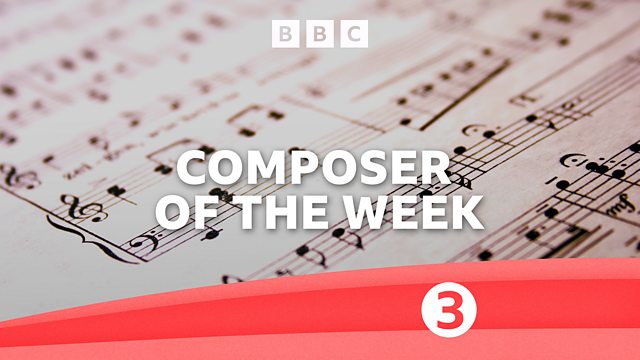
A Time of Conflict
Donald Macleod and Anastasia Belina look at how Augusta Holmès and Henri Duparc fared in the Siege of Paris in 1870. With classic songs from Duparc and symphonic music by Holmès.
Donald Macleod and Anastasia Belina look at how Augusta Holmès and Henri Duparc fared during the Siege of Paris in 1870.
Imagine creating a grand spectacle that demands 1,200 performers, along with the most lavish sets and costumes. You might think that the figure behind such an extraordinary achievement would have staked a claim on immortality, yet despite achieving considerable fame in her own lifetime, this is not the fate that befell Augusta Holmès. Over the passage of time her name has disappeared into obscurity, whilst that of her direct contemporary, Henri Duparc has grown and prospered. These days he’s regarded as one of the leading figures of French song, yet it’s still the case that relatively little is known about his life.
In Duparc’s case his is a reputation built on the slenderest of musical means, some seventeen mélodies. By contrast, Holmès’s Ode triomphale, which was written to mark the centenary of France’s 1789 revolution, is the largest of a generous collection of large-scale orchestral works, to which you can also add four operas, the last of which was mounted at the Paris Opera in 1895, as well as considerable catalogue of songs.
To shed light on Holmès's music, several of her works, including one of her symphonies, have been specially recorded by the ����ý Performing Groups, as part of the Forgotten Women Composers project, which was developed by the ����ý in association with the Arts and Humanities Research Council.
Helping Donald Macleod uncover more about the little-known Augusta Holmès and Henri Duparc, is Anastasia Belina, a researcher with a particular interest in 19th-century music and women composers.
Holmès and Duparc both contributed to the war effort, as a nurse, and as a member of the 18th Battalion. Yet despite the exigencies of their situation, music-making was still possible.
Holmès: La Haine (excerpt)
Rebecca de Pont Davies, mezzo contralto
Clare Toomer, piano
Duparc: La Vague et la cloche
Françoise Pollet, soprano
Orchestra Symphonique et lyrique de Nancy
Jérome Kaltenbach, conductor
Holmès: Memento mei deus
����ý Singers
Hilary Campbell, conductor
Duparc: Lénore, symphonic poem
Toulouse Capitole Orchestra
Michel Plasson, director
Duparc: Au pays où se fait la guerre
Janet Baker, mezzo soprano
London Symphony Orchestra
André Previn, conductor
Holmès: Irlande
Rheinland-Pfalz Philharmonic
Samuel Friedman, conductor
Last on
More episodes
Music Played
-
![]()
Augusta Holmès
La Haine (excerpt)
Performer: Clare Toomer. Singer: Rebecca de Pont Davies.- Lorelt LNT 109.
- Lorelt.
- 5.
-
![]()
Henri Duparc
La Vague et la Cloche
Singer: Françoise Pollet. Orchestra: Orchestre symphonique et lyrique de Nancy. Conductor: Jérôme Kaltenbach.- ACCORD : 202832--.
- ACCORD.
- 9.
-
![]()
Augusta Holmès
Memento mei deus
Choir: ����ý Singers. Conductor: Hilary Campbell. -
![]()
Henri Duparc
Lénore, symphonic poem
Orchestra: Toulouse Capitole Orchestra. Conductor: Michel Plasson.- EMI CDC 5553852.
- EMI.
- 4.
-
![]()
Henri Duparc
Au pays où se fait la guerre
Singer: Janet Baker. Orchestra: London Symphony Orchestra. Conductor: André Previn.- EMI CZS 5686672.
- EMI.
- 10.
-
![]()
Augusta Holmès
Irlande
Orchestra: Rheinland-Pfalz State Philharmonic Orch. Conductor: Samuel Friedman.- Marco Polo 8223449.
- Marco Polo.
- 2.
Broadcasts
- Wed 8 Jul 2020 12:00����ý Radio 3
- Wed 8 Jun 2022 12:00����ý Radio 3
Beethoven Unleashed – the box set
What was really wrong with Beethoven?
Composers A to Z
Who knew? Five eye-opening stories from Composer of the Week
Five reasons why we love Parry's Jerusalem
What is the strange power of Jerusalem which makes strong men weep?
A man out of time – why Parry's music and ideas were at odds with his image...
The composer of Jerusalem was very far from the conservative figure his image suggests.
Composer Help Page
Find resources and contacts for composers from within the classical music industry.





